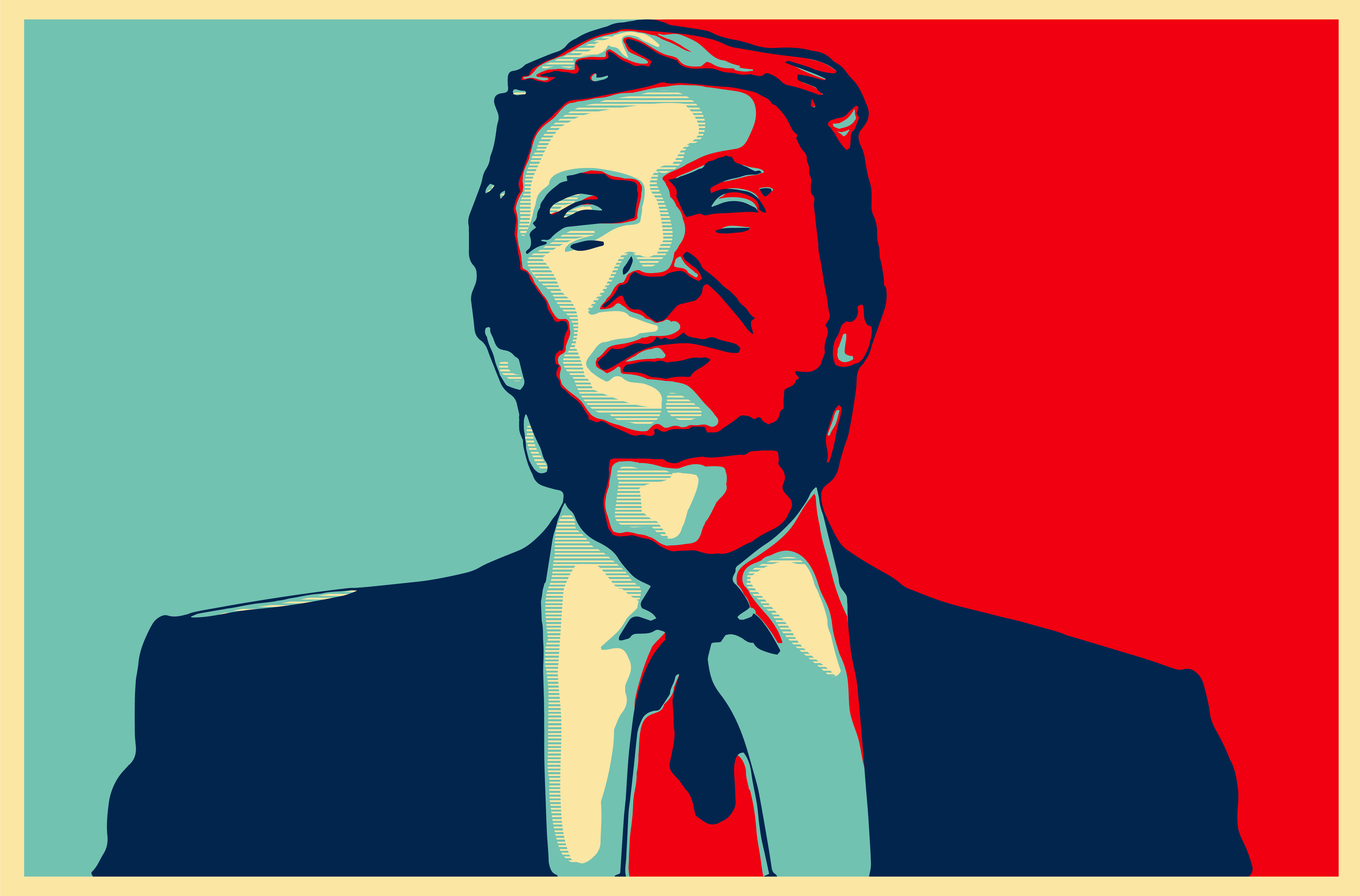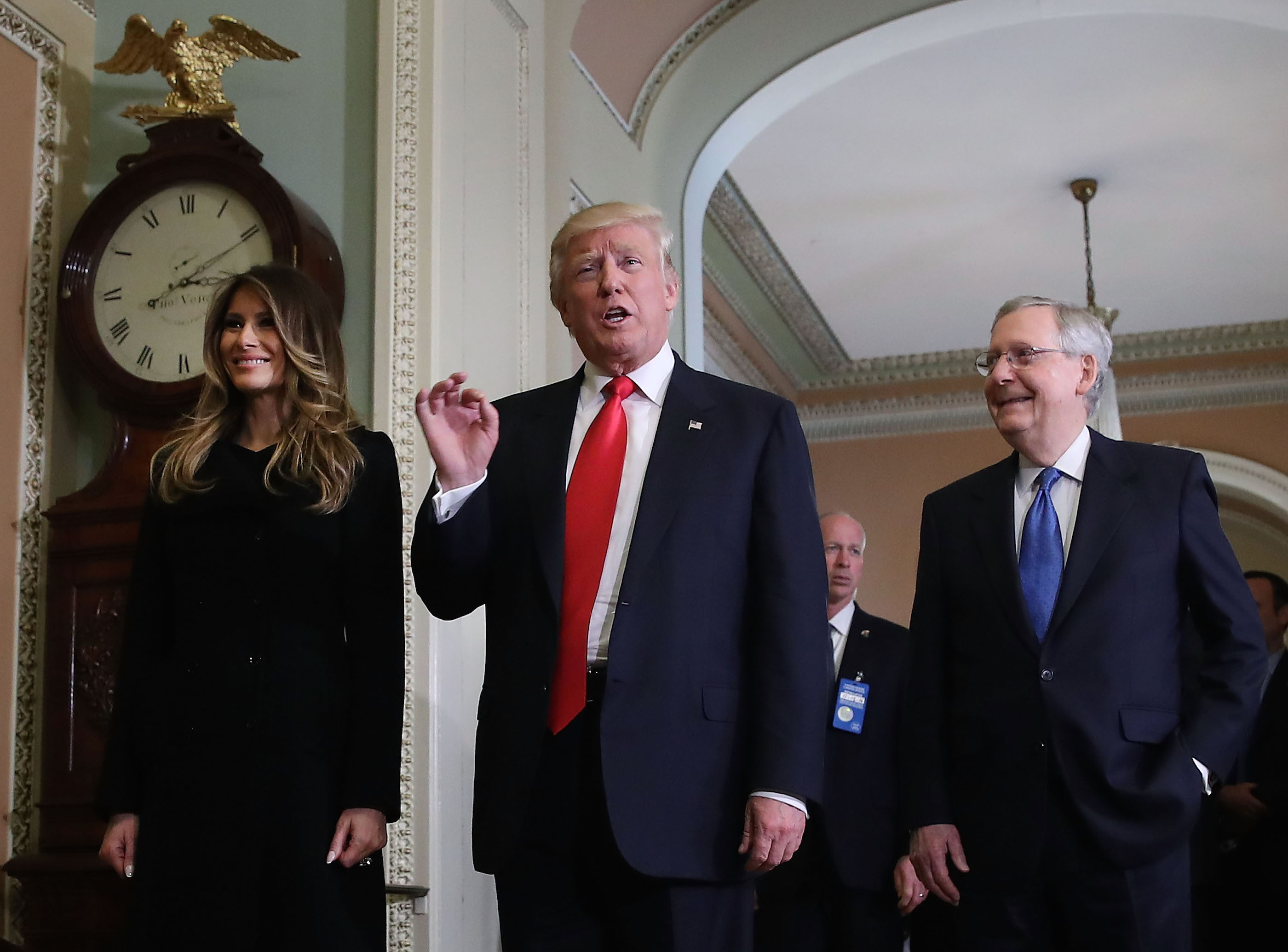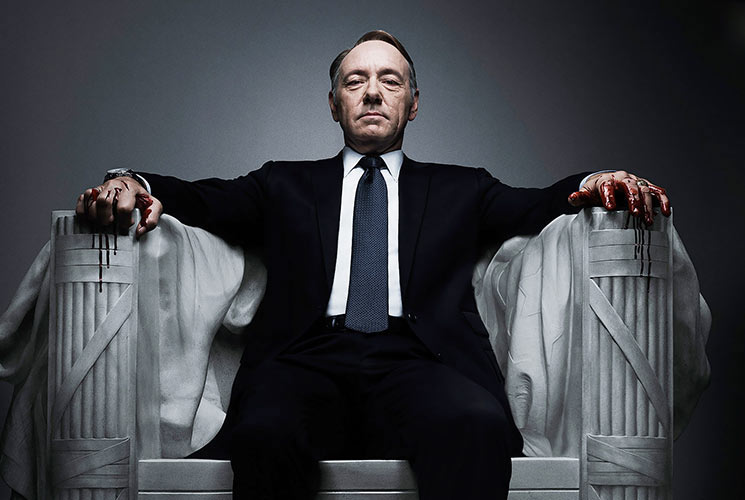
Politics & Society
Trump + Twitter: Unfettered honesty or unchecked vitriol?

The new President won’t have a completely clear run to do what he wants. There are plenty of checks and balances to rein him in.
Published 21 January 2017
Donald Trump has become President of the most powerful nation in the world. Whether you love or loathe him, his ability to act will be subject to a mixture of constraints. These constraints act on all presidents. In varying combinations, they explain why all presidents of the modern era fail.
Now in its 23rd decade of operation, the Constitution of the United States of America remains the most effective enabler of national power and its greatest check. It creates a competition for political power among the three branches of the US government and guarantees that none ever wins for very long. Its genius lies in creating a national politics whilst simultaneously making national power subject to a variety of controls.
President Trump gets to pick a White House cabinet but each nominee is subject to confirmation by the Senate. As President, he can send troops into combat but Congress must approve him doing so. If he signs legislation into law the Supreme Court will inevitably be given the chance to knock it down. The upshot is a constitutional system that no president, whether monster or mouse, can really do much to change and which imposes far mores rules on him than he could ever dream of imposing on it. Welcome to government, President Trump.

Having majorities in both house of Congress will not guarantee President Trump an easy time. In fact, the reverse might well be the case. Congress can be fiercely institutional in its loyalties, preferring itself to the executive. Bill Clinton was unable to do anything when his own party controlled Capitol Hill during the first two years of his administration. Worse for Trump is the well of distrust held toward him by Republicans. This shows every indication of continuing into his first term.
Barack Obama was a supposedly great unifier but never when it came to Congress. He got Obamacare through on a strictly partisan basis – and it now appears set for repeal. Its fate provides evidence that any president’s signature legislation can be imperilled by Congress. Anti-Trumpers should take heart from this.

Politics & Society
Trump + Twitter: Unfettered honesty or unchecked vitriol?
The Supreme Court is not the plaything of the president. His power over it is small to non-existent. In order to get his people appointed to it a sitting justice has to retire or die. He needs luck for this to happen. No one died under Jimmy Carter, three did under Ronald Reagan. Supposing one or possibly two meet their maker in the next few years, President Trump will need to select a candidate capable of winning enough bi-partisan votes in Congress to be confirmed. Even then, there is no guarantee that a Trump pick will do his bidding: “Get a man on the Supreme Court,’’ said Harry Truman, “and he ceases to be your friend.’’ Democrats were fearsome opponents of Clarence Thomas, an African American nominee. He scraped in. In an era of hyper-partisanship, Trump’s picks may not be so lucky.
Napoleon, Stalin, Hitler, Franco, Mao, Pol Pot: Europe and Asia have been engines of tyranny for centuries. The United States, in contrast, produces grey men to lead it. We can count on one hand the indisputable ‘great’ US presidents and each of them left office as per the US electoral calendar. America remains a nation of laws not of men. If Trump’s ego tempts him toward despotism, he will find more opponents, not less.

George W. Bush promised a humble foreign policy, then along came 9/11. What a candidate wants he rarely gets. Donald Trump has, like any politician to this point, focused on his agenda. Such plans invariably hit the buffers of reality. He is not merely a set of positions but a living, breathing chief executive who must adapt to the various, unforeseen crises of human affairs. We do not yet know what these will be. They will either make him – see Lincoln and the US civil war – or unmake him – see Obama and the Syrian civil war.
Via his ubiquitous TV presence over several decades Trump has been in millions of American living rooms. This familiarity tells us little about how he will perform in office. Ronald Reagan was widely derided as a B movie actor – his films are deeply forgettable – and yet his record as President was considerable. Reagan’s willingness to defy the political correctness of his day – by calling for the tearing down of the Berlin Wall, for example – should caution us that there is more to leadership than being PC.
The dark night of fascism that George W. Bush was supposed to presage actually led to the rebirth of popular Democratic politics – evidenced in the rise of Obama and a popular culture receptive to Michael Moore. Trump may well have a similar effect. If Trump is as odious as Meryl Streep and other progressives claim him to be, he will move millions back into their camp.

The president, any president, is only one part of American politics. What happens in Washington is not the sum total of those politics. The 50 states remain important ‘laboratories of democracy.’ There are at least 87,504 governments in the United States – from one national in DC to 16,629 townships. President Trump cannot fully control the first one so the notion that he can control the rest is an exaggeration. It was Alex de Tocqueville who first remarked in the 1830s on how civically-minded and engaged Americans were without being necessarily political. That national character trait has endured.
Loving one president or another does not change a basic feature of modern America: all its presidents fail. Those who promise much – like Obama – simply cannot deliver. We think they are going to be either a Jed Bartlett or a Frank Underwood but none enjoy this much freedom of action. Expectations (and thus fears) are rarely realised.
Presidential power is the power to persuade. Trump may be followed around by a soldier carrying the nuclear codes but his real power will come down to his ability to persuade people to do what they would not otherwise do. “That is all the power of the president amounts to,” bemoaned Dwight Eisenhower. Barack Obama’s large reserves of charisma did not translate into an ability to win over suspicious opponents, at home and abroad. If Donald Trump really is going to be the dealmaker-in-chief, he will have to compromise and moderate. If that happens his haters will breathe easier – and his supporters will look for a new messiah.
This article has been co-published with the Herald Sun.
Banner Image: Picture: Gage Skidmore/Flickr. Artwork Sarah Fisher